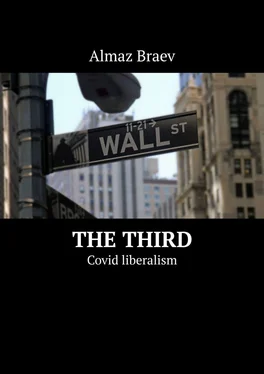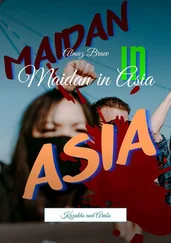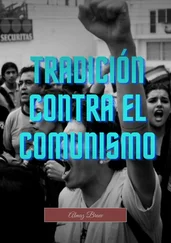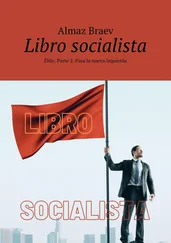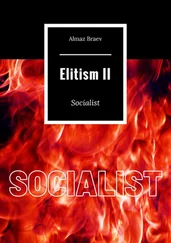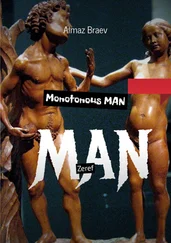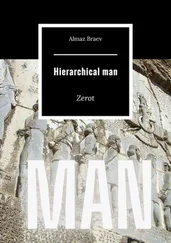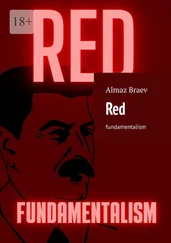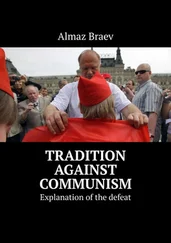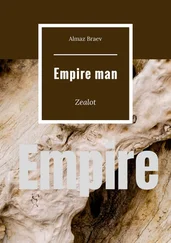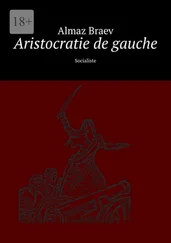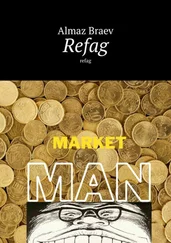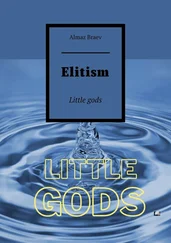Almaz Braev - The Third. Covid liberalism
Здесь есть возможность читать онлайн «Almaz Braev - The Third. Covid liberalism» — ознакомительный отрывок электронной книги совершенно бесплатно, а после прочтения отрывка купить полную версию. В некоторых случаях можно слушать аудио, скачать через торрент в формате fb2 и присутствует краткое содержание. ISBN: , Жанр: Политика, на английском языке. Описание произведения, (предисловие) а так же отзывы посетителей доступны на портале библиотеки ЛибКат.
- Название:The Third. Covid liberalism
- Автор:
- Жанр:
- Год:неизвестен
- ISBN:9785005102256
- Рейтинг книги:3 / 5. Голосов: 1
-
Избранное:Добавить в избранное
- Отзывы:
-
Ваша оценка:
- 60
- 1
- 2
- 3
- 4
- 5
The Third. Covid liberalism: краткое содержание, описание и аннотация
Предлагаем к чтению аннотацию, описание, краткое содержание или предисловие (зависит от того, что написал сам автор книги «The Third. Covid liberalism»). Если вы не нашли необходимую информацию о книге — напишите в комментариях, мы постараемся отыскать её.
The Third. Covid liberalism — читать онлайн ознакомительный отрывок
Ниже представлен текст книги, разбитый по страницам. Система сохранения места последней прочитанной страницы, позволяет с удобством читать онлайн бесплатно книгу «The Third. Covid liberalism», без необходимости каждый раз заново искать на чём Вы остановились. Поставьте закладку, и сможете в любой момент перейти на страницу, на которой закончили чтение.
Интервал:
Закладка:
Moreover, though Germany was behind in the market from other major European powers, it was much surpassed Russia in the degree of industrialization. The concentration of the Remids, an independent thinking elite according to the Revcon, was also significant in the urbanization.
If we consider the prism of tradition, Germany was 1/3 traditional, and Russia 4/5. The crowd of huge Zerefs and Zeremids roamed the cities and mastered not by choice. The crisis was the most important reason for such migration, also driven from above in Russia. And worldwide, the main catalyst for both the crisis and the crowd of “ideological” people is the crisis. The crisis is like disinheriting all people all at once so that it is even more clear within the topic of older and younger sons. (In ancient times, famine was also the main reason for the migration of peoples. In those days, the whole people, the whole tribe, moved in search of a better place to live. According to another name, the Great Migration of Peoples, the great migration of nomads took place in a monotonous crowd. After modernization, only younger children moved from the countryside to the cities. This is the effect of progress on the structure of migrants. However, modern migrants may have mixed migration from Asia to Europe.)
Have you noticed how the so-called conditional elite of society degrades during the famine? If you have not seen hunger, then at least during the distribution of products on the cards. That’s nothing. Suppose the crowd of citizens is stable and stands in one place. But if the so-called elite also migrates from the former Soviet republics to Russia, it is like peasants fleeing collectivization; it turns into these freshest citizens. With this migration, the entire past elite of prominent citizens in their former place turns into “eldest sons” in the new place. Russians were actually the elite, the vanguard of culture in the USSR. At least for the periphery of the red Empire. Are these the last of Remids to transform to Zeremids and even Zerefs? They degrade for a whole generation. They have nothing to pass on to their children.
Furthermore, they all turn into a national concern for the patriots, so that you can understand how the nation of Goethe, Schiller, and Bach turned into conditional savages (from the perspective of left-wing humanists ). If the entire group of the former elite is ruined, humiliated, lowered, then they become Nazis, quite naturally.
And in Russia.
If there are only two important megacities in the state, and the population remains almost traditional, then this is the time of younger sons who are hungry for justice.
CHAPTER VII
COMMUNIST THALMANN IN THE ROLE OF IVAN THE FOOL
So, in order for the ideas of the people’s state to be at the top or dominating, it is necessary to have a certain number of conditional older brothers. Younger brothers get the upper hand when this absolute authority is not present. All the old city elite, all these doctors, teachers, lawyers, and officials are once again turning into supporters of a hard hand, authoritarianism, do not recognize any tramps from the street, no proletarians with their equalization and social justice fake. Everything that these ragamuffins shouted under the direction of their leaders, all these slogans painted on marching banners, all this was a lie, hypocrisy from the perspective of the urban elite. The traditional perception of caste has not disappeared anywhere. It took a slightly different form. All civil servants and intellectuals turn into conservatives at once. But not in the form of those retrogrades that want to return the feudal castes. No one has yet gone mad to reverse the history of the Revival of feudalism with its rigid castes is possible only with little urbanization at all. Only for nomads is possible. For urbanized peoples, such a revival of history is de facto impossible. The past elite in the form of Remids wants to stop this farce of legal equality, even at the cost of curtailing their rights. After all, the Republic is always a Horde of all the younger brothers. It was their democracy, their endless chatter, their permissiveness that led to the crisis. In fact, they violated the law of social hierarchy and led to anarchy. If it is not the elder brother who rules or even the father, but the younger ones who want authority, this will inevitably lead any family to ruin. If you gather the will of all the younger ones in the Republican Parliament, you will get a violation of tradition within the entire society. This is how all the old intelligentsia turns into supporters of the autocracy, dictatorship, and then Nazism if there is a need to unite everyone with one idea from teachers to lumpen.
But wait because in Germany in the 30s, the Communist party also marched cheerfully on squares and streets. In the ranks of the KPD and under the hand of the Communist leader, Telman was a million workers. How did they differ from the Republican younger brothers? Why were they for an even more left-wing social Republic? At least in words, in their slogans of the dictatorship of the proletariat.
By definition, everyone who stands for the Republic is a younger brother because it is inferior to others in Patriarchal law. In turn, the one who is inferior in age to all the brothers is a Communist. There are no real brothers in Revcon. But there is a similarity of interests in mass reflection. Proletarians are the young of the townspeople. They are Zeremids. Why did they not join the ranks of the bourgeois and petty-bourgeois Democrats? Because all the places in the market and especially in the parliament were occupied when they arrived. The burghers have already filled the city. The only places left for survival are in factories.
Now, the younger brother is not only due to age, but also the practice of life is obliged to get a family by the deadline. He will have children. He becomes a father too. Now he is not even an older brother but a father, which is even worse for the Republic. Each time, he will rule and take the side of all the older brothers and the existing elite. Right or wrong?
The fact is that every father is the founder of a dynasty and, therefore, of a family tradition. Whose footsteps will his son follow? Even if it goes to the same factory.
Of course, under more favorable circumstances, the Germans could prevail not against Bolshevism, but Nazism. That is the Institute of Junior Republicans of the proletarian type. In this case, the German service elite would have changed its Nazi orientation and become entirely international? Quite possible. For all Remids, the state comes first. Let it be not German, but international German – what difference does it make? It does not matter which leader would curb the market bacchanalia.
But Stalin himself would not have needed an advanced Soviet Germany. Stalin needed a German leader-the younger brother and puppet, the sexless leader Telman. Telman must fulfill the will of another form of seniority – the Communist Moscow regime, which by this time was a continuation of the Russian feudal tradition. Stalin’s officials and nomenclature were only called Bolsheviks. The real Bolsheviks, world internationalists, were not yet killed by Stalin de facto but removed from power. He leaned on his “sons,” looking into his mouth, also almost ideologically sexless but willing to start a family—all according to the same laws of tradition. A quiet heifer sucks the two cows. You don’t have to be the oldest in the Russian tradition to get an inheritance. In the Russian tradition, obedience itself promised pies and the love of parents. Any poor Ivan is a fool or Emelya on the stove are not just folk heroes.
CHAPTER VIII
REMIDS STATESMEN
Why did the German statists, supporters of the state, still choose Hitler but not Telman? Although, Telman was already placed in the category of second-rate German deputies of Stalin. In the years 27—29, Stalin purged Lenin’s third Comintern from leftists. They left people similar to themselves, to their conditional family because the similarity of brothers is not necessarily external similarity. But it was not the figure and size of Telman’s personality that played a major role in the German’s strategic choice.
Читать дальшеИнтервал:
Закладка:
Похожие книги на «The Third. Covid liberalism»
Представляем Вашему вниманию похожие книги на «The Third. Covid liberalism» списком для выбора. Мы отобрали схожую по названию и смыслу литературу в надежде предоставить читателям больше вариантов отыскать новые, интересные, ещё непрочитанные произведения.
Обсуждение, отзывы о книге «The Third. Covid liberalism» и просто собственные мнения читателей. Оставьте ваши комментарии, напишите, что Вы думаете о произведении, его смысле или главных героях. Укажите что конкретно понравилось, а что нет, и почему Вы так считаете.
